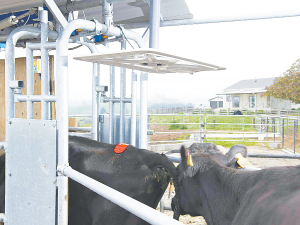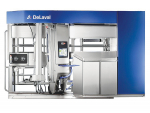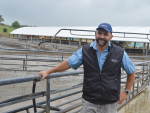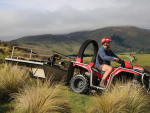Tail pant has been shelved by a King Country farm — the first in New Zealand to try DeLaval’s automated cow heat detection.
Called HeatGate, it has an electronic circuit contained in an adhesive patch. The technology replaces tail paint and manual drafting.
The patch is activated once pressure is applied and it then automatically sorts cows at the gate for mating. The system suits any shed and farming system.
Robbie van der Poel, whose 400 cow farm at Otorohanga is doing the trial, says he likes the patches’ simplicity.
“Anyone can use this in a way that minimises labour. We now have one fewer labour units in the cowshed.
“You can do the whole herd in one milking ready to send out the next day and it’s a one-off cost.”
DeLaval says the technology can improve submission and in-calf rates.
“The technology enables farmers to lift their profitability and manage the health of their animals without increases in labour,” said Peter Wilson, solution manager herd management at DeLaval.
“We’ve seen about 231 more days in milk on our test farm as a result of automating heat detection alone.
“In our first mating we had a 7% increase in our 3 week in-calf rate so that basically means more cows in calf earlier, more days in milk, more money in my pocket,” said Van Der Poel.
DeLaval HeatGate can be installed and operated in any cow shed and any farming system. It can be run by a hand-held device, or by a standalone fixture on any gate (no need to connect it to a central data management system) or with a DeLaval Sortgate.
“Before using HeatGate we used traditional tail paint, as I was taught. But now the cows are automatically drafted out and they’re there waiting for me to deal with after milking,” said van der Poel.


















